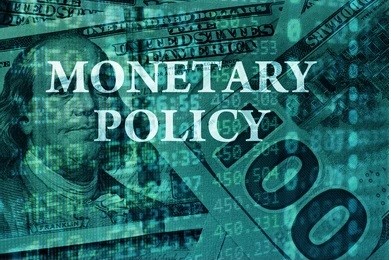INP-WealthPk
Adeem Niaz
A monetary policy is a public policy that cannot be undertaken in isolation from its socio-economic consequences. It is thus time for the State Bank of Pakistan (SBP) to understand that the implications of its decisions, actions, and policies go well beyond simply correcting the balance of payments and also affect poverty, inequality, and other social outcomes, said Dr Sajid Amin Javed, Deputy Executive Director at the Sustainable Development Policy Institute (SDPI), reports WealthPK.

During a session on ‘’Capacity Development Training for Journalists in Economics and Finance’’, Dr Sajid said a monetary policy is even more important than the fiscal policy for the public at large. He said it is a standard in Pakistan that the salary of an employee increases 10% annually and if inflation stands at 5%, it will result in a 5% increase in his purchasing power. This shows how important a monetary policy is for the public at large.
“Everyone is quick to point a finger at the government when inflation rises but actually controlling inflation is the central bank’s responsibility but nobody questions it. A monetary policy is important for the development agenda of the country, so the State Bank should communicate with the public at large," said Dr Sajid.
‘’There is a very strong divorce between the monetary policy and the public at large. So, there is a need to build awareness about the monetary policy among the public, which will definitely increase its effectiveness. At the same time, increase in awareness about the monetary policy among the public will surely put pressure on the SBP to deliver on lower and stable inflation policies,’’ said the PIDE deputy executive director.
An analysis of the working papers of the SBP during the past 20 years found that none of their titles contains words related to poverty or inequality, said Dr Sajid. He pointed out that the monetary policy decisions, research, and communication have become greatly distanced from the general public. So, there was a greater need for creating a source of communication between the State Bank and the public at large.
‘’Central banking, particularly the monetary policy, has distributional effects such as income, consumption, and wealth inequalities. Simply put, monetary policy instruments disproportionately affect high- and low-income groups, generating various inequities. The need for central banking, particularly monetary policy, to be considerate of its social imprint is, therefore, increasing,’’ Sajid added.
According to an International Monetary Fund (IMF) working paper published in September 2020, tackling inequality should be an explicit target of the monetary policy. The central banks, therefore, while meeting their formal mandate of price stability, should pay increasing attention to poverty, inequality, and other general public issues, he added.
Dr Sajid said a monetary policy is a public policy whose ultimate objective is to improve the welfare of the public. ‘’It directly impacts the day-to-day lives of the public at large. Therefore, it is important to raise public knowledge of the importance of monetary policy and how it affects the people's daily lives. The general public has to be aware of the role that a monetary policy plays in their daily lives,’’ Dr Sajid added.
Credit : Independent News Pakistan-WealthPk



